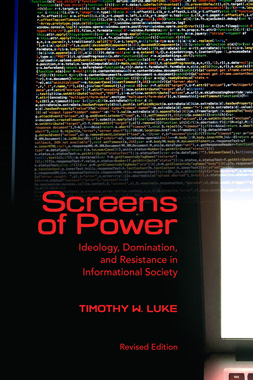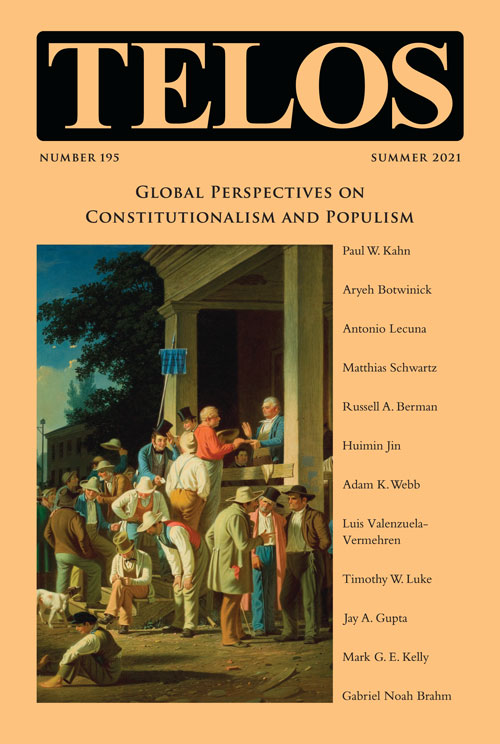In today’s episode of the Telos Press Podcast, David Pan talks with Antonio Lecuna about his article “Populism in Venezuela: The Nature of Chavismo,” from Telos 195 (Summer 2021). An excerpt of the article appears here. If your university has an online subscription to Telos, you can read the full article at the Telos Online website. For non-subscribers, learn how your university can begin a subscription to Telos at our library recommendation page. Print copies of Telos 195 are available for purchase in our online store.
|
In today’s episode of the Telos Press Podcast, David Pan talks with Beau Mullen about his article “Turmoil in Egypt: Faith, Nationalism, and the Apparent Inadequacies of Liberalism,” from Telos 194 (Spring 2021). An excerpt of the article appears here. If your university has an online subscription to Telos, you can read the full article at the Telos Online website. For non-subscribers, learn how your university can begin a subscription to Telos at our library recommendation page. Print copies of Telos 194 are available for purchase in our online store. The following commentary is based on a text that appeared originally in German in Junge Freiheit. An English translation of the interview with Hans-Georg Maaßen in Die Weltwoche has been posted separately today in TelosScope, here. The interview with Hans-Georg Maaßen documents his reactions toward the charge of anti-Semitism against him by several German media outlets in the last few weeks since he announced his candidacy for the German Bundestag. The controversy has revealed more about the deterioration of the German media landscape than about Maaßen’s own views and character. Spurred on by a charge against him of racism and anti-Semitism by climate activist Luisa Neubauer on ARD’s political talk show Anna Will, media outlets scoured Maaßen’s writings with the hope of giving their accusations some substance. The dearth of the evidence against him led them in the end to an article that he published with Johannes Eisleben in English in TelosScope. But rather than engaging with the specific arguments of the article, the commentators have engaged in a kind of witch hunt. The following interview appeared originally in German in Die Weltwoche on June 18, 2021. Translated into English by Xuxu Song. A separate commentary by David Pan appears here. Hans-Georg Maaßen, President of Germany’s Federal Office for the Protection of the Constitution from 2012 to 2018, is accused of spreading anti-Semitic ideas. The accusation comes from the milieu of the “Fridays for Future” movement. The timing, Maaßen suspects, is no coincidence and has nothing to do with the political climate. Rather, they want to prevent his election as a member of the Bundestag. Writing in the current issue of New Political Science, Saladdin Ahmed reviews Timothy W. Luke’s Screens of Power: Ideology, Domination, and Resistance in Informational Society, recently published in a new edition by Telos Press. Purchase your copy of Screens of Power today in our online store and save 25% off the list price. An excerpt of the review:
Telos 195 (Summer 2021): Global Perspectives on Constitutionalism and Populism is now available for purchase in our store. Individual subscriptions to Telos are also available in both print and online formats.
|
||||
|
Privacy Policy · Data Protection Copyright © 2026 Telos Press Publishing · All Rights Reserved |
||||




